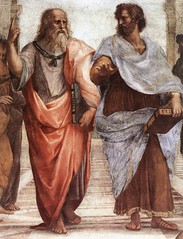| 5054131749 | Achaemenid Empire | First Persian Empire, founded by Cyrus the Great. Pastoral with limited agriculture. | 0 | |
| 5054131750 | Darius of Persia | conquered Indus, Gandhara, Thrace, and Macedon |  | 1 |
| 5054131751 | Persepolis | central administration of Achaemenid Empire | 2 | |
| 5054131752 | Qanat | underground canals for irrigation in the Persian empire |  | 3 |
| 5054131753 | Battle of Marathon | Persians lost this battle due to the mountainous regions of Greece as well as the distance | 4 | |
| 5054131754 | Alexander the Great | best general to ever live, sliced through Persia and conquers his way to India |  | 5 |
| 5054131755 | Seleucus | successor to Alexander the Great, founded new cities throughout the realm and faced opposition from the native Persians. | 6 | |
| 5054131756 | Parthians | Nomads from the central asian steppes, lacked central administration. Developed agriculture. Heavy cavalry provided great defense against nomadic tribes |  | 7 |
| 5054131757 | Sasanids | This people conquered Parthians, set up elaborate system of organization, built infrastructures like roads and dams | 8 | |
| 5054131758 | Zoroastrianism | official religion of Persia, monotheistic, concept of dualism |  | 9 |
| 5054131759 | Dualism | separation between good and evil | 10 | |
| 5054131760 | Ahura Mazda | Zoroastrian god, "Wise Lord", that created the world |  | 11 |
| 5054131761 | Avesta | Zoroastrian book of Holy Scriptures. Split into two main sections: the Gathas- 17 hymns, the younger- rituals and myths |  | 12 |
| 5054131762 | Warring States | period of turmoil in classical China |  | 13 |
| 5054131763 | Confucius | ancient Chinese philosopher, whose teachings focused on personal and governmental morality, correctness of social relationships, justice and sincerity. |  | 14 |
| 5054131764 | Analects | collection of short philosophical extracts, written by followers of Confucius around 500BCE | 15 | |
| 5054131766 | Ren | attitude of kindness, benevolence, and humanity. | 16 | |
| 5054131767 | Li | sense of propriety and respect | 17 | |
| 5054131768 | Xiao | filial piety | 18 | |
| 5054131771 | Daoism | Philosophy that believes individuals can't change the world, so the focus is to change oneself. Passive, peaceful beings, one with yourself. "the way of nature" | 19 | |
| 5054131772 | Doctrine of Wuwei | Non-action or non-doing (Daoism) | 20 | |
| 5054131773 | Laozi | founder of Daoism |  | 21 |
| 5054131774 | Daodejing | Chinese classic text about virtue | 22 | |
| 5054131775 | Legalism | practical and efficient, not concerned with ethics or morality, clear and strict laws with severe punishments |  | 23 |
| 5054131777 | Han Feizi | influential political philosopher during warring states period that synthesized the methods of Shang Yang |  | 24 |
| 5054131778 | Qin Dynasty | short but influential, forced labor, introduced standardization of laws, currency, weight, measurement, and language. Destroyed public works, discouraged learning, centralized, bureaucratic government - before Han, but after Zhou. | 25 | |
| 5054131779 | Terra Cotta Soldiers | collection of sculptures that represents the armies of the first emperor of China |  | 26 |
| 5054131780 | Han Dynasty | Imperialistic, long but less influential, monopolies of iron and salt, fights with nomads, discouraged learning, centralized, bureaucratic government. |  | 27 |
| 5054131781 | Liu Bang | founder of the Han Dynasty |  | 28 |
| 5054131783 | Xiongnu | large confederation of Eurasian nomads who dominated the Asian Steppes |  | 29 |
| 5054131784 | Wang Mang | a Han Dynasty official who seized the throne from the Liu family and founded the Xin Dynasty |  | 30 |
| 5054131785 | Yellow Turban Uprising | peasant revolt in China against the Han dynasty. | 31 | |
| 5054131786 | Mauryan Dynasty | Chandra Gupta and Ashoka are able to unite Northern India using military force and economic benefits. Buddhism spreads rapidly because of the conversion of Ashoka. |  | 32 |
| 5054131787 | Chandragupta Maurya | founder of the Mauryan Dynasty, first emperor to unify most of India |  | 33 |
| 5054131788 | Ashoka Maurya | third ruler of India, introduced pillar edicts for recording and publicizing laws, |  | 34 |
| 5054131790 | Bactria | province of the Indian Empire, resisted Alexander the Great | 35 | |
| 5054131791 | Kushan Empire | Syncretic empire north of India that focused on trading using the Silk Road | 36 | |
| 5054131792 | Socrates | main focus was on how to live a good and virtuous life |  | 37 |
| 5054131793 | Jainism | it is believed that the whole world is alive and nearly everything is capable of feeling pain | 38 | |
| 5054131795 | Buddhism | all life is suffering, eliminate desire | 39 | |
| 5054131796 | Siddhartha Gautama | founder of Buddhism, became known as Buddha "the awakened one" | 40 | |
| 5054131797 | Asceticism | severe self discipline and avoidance of all forms of indulgence | 41 | |
| 5054131799 | 4 Noble Truths | suffering, its origin, and how to end it | 42 | |
| 5054131800 | 8 Fold Path | path leading to the extinction of suffering | 43 | |
| 5054131801 | Nirvana | perfect enlightenment | 44 | |
| 5054131802 | Bodhisattva | someone who is on the way to attaining enlightenment | 45 | |
| 5054131803 | Vishnu | predominant Hindu diety | 46 | |
| 5054131804 | Bhagavad Gita | ancient Indian poem that was a part of a larger epic called Mahabharata |  | 47 |
| 5054131805 | Dharma | cosmic order, but can also mean the virtual basis for apparent forms of reality. | 48 | |
| 5054131808 | Moksha | liberation, self-actualization | 49 | |
| 5054131809 | Minoan (Crete) | lavish palaces, refined artwork, luxurious lifestyle | 50 | |
| 5054131811 | Linear A | unknown syllabic language that was used to keep track of trade | 51 | |
| 5054131812 | Mycenaean (Peloponneus) | trade-based, adapted linear A, thrived on assimilation, Indo-European peoples | 52 | |
| 5054131813 | Trojan War | battle between the Trojans and Greeks, considered to be more myth than reality | 53 | |
| 5054131814 | Polis | Greek city-state | 54 | |
| 5054131815 | Sparta | Greek city state that rejected Athenian powers, which then created own association that sparked the Peloponnesian wars | 55 | |
| 5054131816 | Helot | peasant class of Sparta | 56 | |
| 5054131817 | Athens | democratic city-state of Greece | 57 | |
| 5054131818 | Solon | chief magistrate that lays foundation of democracy in Athens |  | 58 |
| 5054131819 | Pericles | Athens blossomed as a center of education, art, culture, and democracy during this period | 59 | |
| 5054131820 | Acropolis | citadel built on a high hill | 60 | |
| 5054131821 | Peloponnesian War | War stemmed from the Spartan association with other city states | 61 | |
| 5054131822 | Macedonia | after the fall of two major cities in Greece, this city-state filled in the power void | 62 | |
| 5054131823 | Hellenistic | Age in which Greek thought and culture became dominant in the various regions under generals' influence. |  | 63 |
| 5054131824 | Panhellenic Festival | 4 separate sports festivals | 64 | |
| 5054131825 | Plato | pre-eminent Greek philosopher, known for his Dialogues and for founding his Academy north of Athens and for his allegory of the cave | 65 | |
| 5054131826 | Hippocrates | was the father of medicine, was the first to formulate a classification system of mental disorders. | 66 | |
| 5054131827 | Pythagoras | Considered the first "true" mathematician, important figure in the development of mathematics. | 67 | |
| 5054131828 | Aristotle | rebelled against his teacher's ideas and believed that the only reality that exists is tangible things. His greatest contribution to psychological thought came with his idea that "there is nothing in the intellect that was not first in the senses." |  | 68 |
| 5054131829 | Epicureans | believed that pleasure and the pursuit of knowledge was the greatest good in life, | 69 | |
| 5054131830 | Skeptics | questioned the validity of knowledge. | 70 | |
| 5054131831 | Stoics | felt they should endure pain and hardship without letting people know. | 71 | |
| 5054131832 | Romulus and Remus | creation myth of Rome | 72 | |
| 5054131833 | Etruscans | natives where Rome was then located | 73 | |
| 5054131834 | Consuls | people of the Senate |  | 74 |
| 5054131835 | Patricians | highest social class of Rome |  | 75 |
| 5054131836 | Plebeians | commoners of ancient Rome |  | 76 |
| 5054131837 | Senate | patricians and consuls ratified major decisions | 77 | |
| 5054131838 | Twelve Tables | first written laws in Rome, basis for later laws |  | 78 |
| 5054131839 | Conflict of the Orders | Difference between patricians and plebeians that created conflict in Rome | 79 | |
| 5054131843 | Julius Caesar | part of ruling class, emerges from military victories, grab for power was unconstitutional, he both saved and destroyed Rome |  | 80 |
| 5054131844 | Pax Romana | era of peace and stability apex of cultural and political development | 81 | |
| 5054131846 | Pater Familias | oldest male of the house | 82 | |
| 5054131847 | Spartacus | organized an army of slaves to rebel | 83 | |
| 5054131848 | Punic Wars | started imperialism, determined which empire will emerge between Rome and Carthage |  | 84 |
| 5054131849 | Roman Republic | what emerges after they conquer the last Etruscan king, more like an oligarchy | 85 | |
| 5054131850 | Hadrians Wall | marks the northernmost bound of the Roman empire |  | 86 |
| 5054131851 | Jupiter | The Roman equivalent of Zeus | 87 | |
| 5054131855 | Mars | Roman God of war | 88 |
AP World Classical Era Flashcards
Primary tabs
Need Help?
We hope your visit has been a productive one. If you're having any problems, or would like to give some feedback, we'd love to hear from you.
For general help, questions, and suggestions, try our dedicated support forums.
If you need to contact the Course-Notes.Org web experience team, please use our contact form.
Need Notes?
While we strive to provide the most comprehensive notes for as many high school textbooks as possible, there are certainly going to be some that we miss. Drop us a note and let us know which textbooks you need. Be sure to include which edition of the textbook you are using! If we see enough demand, we'll do whatever we can to get those notes up on the site for you!

